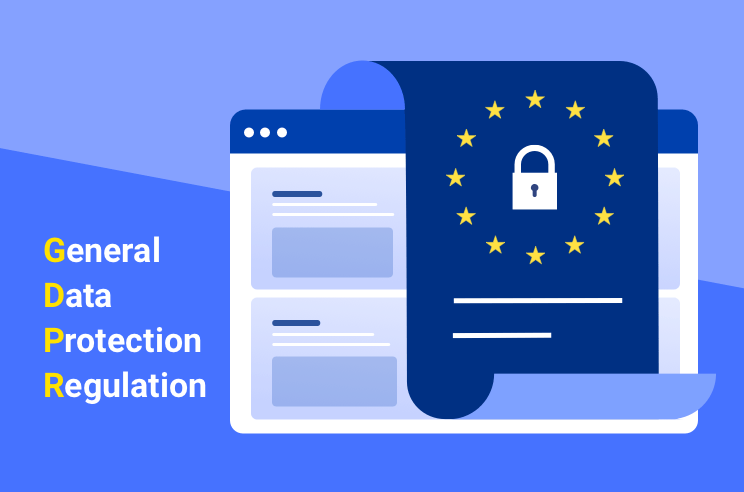GDPR came into force in the year 2018 and since then businesses have become increasingly aware of their obligations. Most businesses are making the effort of implementing measures to ensure GDPR compliance. But, many of them fail to achieve compliance for the lack of knowledge of the regulation or for the common compliance mistakes they commit during the process.
Sharing some of the common GDPR mistakes or pitfalls that organizations often commit, we aim to make our viewers aware and ensure they avoid such mistakes. Given below some tips for our readers to avoid the common GDPR Compliance mistakes or pitfalls during the process of achieving Compliance.
Top 5 GDPR Compliance mistakes or pitfalls
GDPR Does Not Apply To You
Most businesses assume they do not fall in the scope of GDPR Compliance for some reason or another. Assumptions like not having business in the EU does not make you fall in scope or assuming GDPR is meant for large companies or even assuming that small volumes of personal data collected do not fall under GDPR are some of the most common mistakes organizations make. Such assumptions can get organizations into trouble and also expose them to the risk of GDPR Data Breach. Businesses should consult an expert to determine whether or not they fall in scope and accordingly build a strategy to implement necessary measures for compliance.
Failing to Determine Personal Data
GDPR is a Data Protection Law in the EU which aims at securing Personally Identifiable Information of citizens of the EU. So, as per GDPR any data or information related to an identifiable natural person makes it PII data. However, businesses often fail to understand and determine Personally Identifiable Information. Assuming that personal information is just limited to customer’s bank account number, ID’s email id’s contact numbers, etc. is where the problem lies. PII, as per the GDPR definition, is any information related to an identifiable natural person.
This means it could even include Social media posts, profile images of customers, IP addresses of the devices, their geographic locations to name a few. The list is exhaustive and so it is natural that businesses may at times misinterpret the definition of Personally Identifiable Information and end up failing to determine Personally Identifiable Information. That said, without knowing which information is “PII” businesses cannot hope or claim to protect data adequately.
Not Having a Representative in EU
One of the most common and highly overlooked issues in GDPR Compliance is not having a representative in the EU. As per GDPR Regulation, Article 27, a business is required to appoint a representative who can be contacted by clients, and regulatory authorities inside the EU for issues concerning the privacy of the data. Article 27 clearly states that it is an obligation for businesses to appoint a representative in the EU if they have customers from the EU.
More than often businesses fail to comply with this obligation, resulting in non-compliance. Again it is important to note that appointing a Data Protection Officer (DPO) does not let your organization off the hook. A Data Protection Officer is very different from a Data Representative. The roles are distinct with each of them having its own set of responsibilities. So, simply hiring a DPO will not make your organization compliant with the criteria of having a representative.
Considering GDPR compliance the sole responsibility of the IT team
Even after 3 years of enforcement many businesses still fail to understand that GDPR Compliance is not the sole responsibility of the IT team. It is one of the most common mistakes that businesses still commit that results in non-compliance or incidents of a data breach. While the IT team definitely has a key role to play in implementing and monitoring security and privacy measures, but it is not the only department that should be participating in the compliance process.
GDPR affects almost all aspects of your business and should not be neglected by any department. For businesses to achieve compliance, every department must coordinate and audit across organizations to check departments that directly or indirectly impact business. Everyone in the business should understand and know their responsibilities under the GDPR and work in sync to ensure compliance.
Assuming GDPR is solely the responsibility of the Service Provider
Although Service Providers are responsible for GDPR, but that does not let you off the Compliance radar. While it makes the compliance process a lot easier for businesses, yet it does not get them off compliance. In the end, it is the business’s responsibility of ensuring their Service Providers are GDPR Compliant. But businesses often feel outsourcing the responsibility to a Service Provider will keep them out of the Compliance scope. There is also a possibility that you as an organization is getting classified as a “Controller” and your Service Provider as “Processor” as per GDPR norms thereby placing a higher responsibility on you rather than your service provider.
Conclusion
While we have just touched upon the top 5 mistakes, but in reality, it is almost like a non-exhaustive list of mistakes that businesses often commit. For this, it is important and recommended that businesses consult an expert for the compliance process and review the GDPR pitfalls that they often come across in the audit process. GDPR is a new learning curve for businesses and so consulting an expert is always the best option. This will not just make your compliance process a lot more easy and achievable but also prevent your organization from incidents of Data Breach and GDPR penalties.








